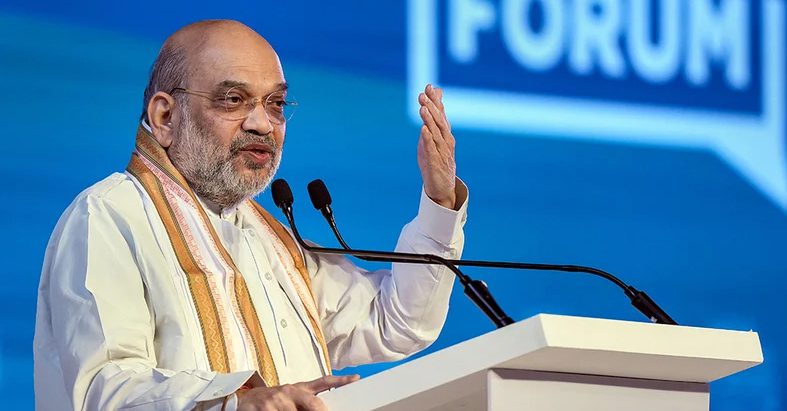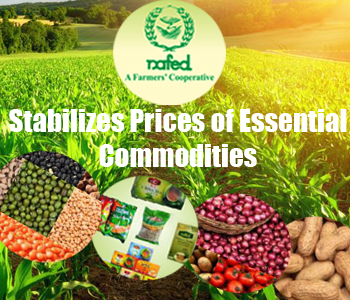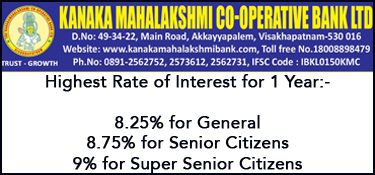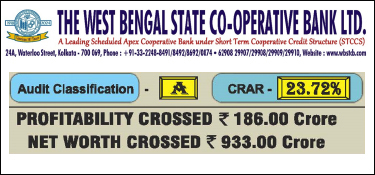To realize Prime Minister Shri Narendra Modi Ji’s vision of “Sahkar se Samriddhi”, a separate Ministry of Cooperation was established on July 6, 2021. Under the leadership and guidance of the first Union Minister of Cooperation of the country, Shri Amit Shah, the Ministry has undertaken various initiatives and historical steps to make the cooperative sector strong and vibrant. In the last 3 years, the Ministry of Cooperation has implemented 56 major initiatives, creating new opportunities for the economic development and expansion of cooperative societies across the country. The details and progress made so far on these initiatives are as under:
- ICA Global Cooperative Conference 2024
Under the leadership of Prime Minister Shri Narendra Modi Ji and Union Home Minister Shri Amit Shah Ji, India hosted the ICA Global Cooperative Conference 2024 for the first time in 130 years. Prime Minister Shri Narendra Modi Ji also launched the United Nations’ International Year of Cooperatives 2025 and released a commemorative postal stamp.
- Portal for registration, procurement and payment of Tur dal producing farmers
Union Home Minister and Minister of Cooperation Shri Amit Shah launched the portal developed by National Agricultural Cooperative Marketing Federation of India Ltd. (NAFED) and National Cooperative Consumers’ Federation of India Limited (NCCF) for registration, procurement and payment of Tur dal producing farmers in New Delhi on 04 January 2024.
- Computerization scheme for the offices of RCSs and ARDBs.
Union Home Minister and Minister of Cooperation Shri Amit Shah launched the computerization scheme for the offices of the Registrar of Cooperative Societies (RCSs) and Agriculture and Rural Development Banks (ARDBs) of the states in New Delhi on 30 January 2024.
- World’s Largest Grain Storage Scheme in Cooperative Sector.
Prime Minister Shri Narendra Modi Ji inaugurated pilot project of ‘World’s Largest Grain Storage Scheme in Cooperative Sector’ in 11 Primary Agricultural Credit Societies (PACSs) in 11 states.
PM Modi laid foundation stone of additional 500 PACSs across the country for creation of godowns and other agri-related infrastructure and also inaugurated project for computerization of 18,000 PACSs on 24 Feb 2024.
- Umbrella organization for Urban Cooperative Banks
Union Home Minister and Minister of Cooperation, Shri Amit Shah inaugurated the umbrella organization for Urban Cooperative Banks (UCBs), the National Urban Cooperative Finance and Development Corporation Limited (NUCFDC), in New Delhi on 02 March 2024
- MoU between NCOL and UOCB
A Memorandum of Understanding (MoU) between National Co-operative Organics Limited (NCOL) and Uttarakhand Organic Commodity Board (UOCB) was signed in New Delhi in the presence of Union Home Minister and Minister of Cooperation Shri Amit Shah on 30 August 2024
- Launching of 10,000 MPACS, Dairy and Fisheries Cooperative Societies
Union Home Minister and Minister of Cooperation, Shri Amit Shah, inaugurated 10,000 newly established Multipurpose Primary Agricultural Credit Societies (MPACS), along with Dairy and Fisheries Cooperative Societies, in New Delhi on 25 December 2024.
(A) Economic strengthening of Primary Co-operative Societies
- Model Bye-Laws for making PACS Multipurpose
- Under the leadership of Prime Minister Shri Narendra Modi and the guidance of Shri Amit Shah, model bye-laws for PACS were prepared by the Ministry of Cooperation after consultation with all states/UTs, national federations and other stakeholders and were circulated on 05 January 2023.
- These model bye-laws aimed to increase the sources of income of PACS/LAMPS and create new employment opportunities in more than 25 new sectors like dairy, fisheries, storage, etc. So far, 32 states/union territories have adopted the Model Bye-Laws or their existing Bye-Laws are in-line with the Model Bye-Laws.
- Strengthening of PACS through Computerization
- Computerization of PACS/LAMPS continued through the financial year 2024-25 and functional PACS/LAMPS were linked with NABARD through a single national software network.
- So far, proposals for computerization of a total of 67,930 PACS have been sanctioned from 30 states/UTs. For this, a total of Rs 700.42 crore to the states and Rs 165.92 crore to NABARD has been released by the Central government for hardware purchase, digitization and setting up support systems. National Integrated Software has been prepared by NABARD. Prime Minster, Shri Narendra Modi inaugurated the project for computerization of 18,000 PACSs on 24th February, 2024 at Bharat Mandapam, New Delhi.
- Establishment of Multipurpose PACS/Dairy/Fisheries Cooperative Societies in every Panchayat/Village
- Under the leadership of Prime Minister Shri Narendra Modi, the Union Cabinet on 15th February, 2023 approved this Plan with the target of setting up new multi-purpose PACS, dairy, fisheries cooperative societies covering all the panchayats/villages in the country in the next 5 years.
- This plan is being implemented with the support of NABARD, NDDB, NFDB and State Goverments, through convergence of various Government of India schemes at the level of these Primary Cooperative Societies.
- A Standard Operating Procedure (Margdarshika) has also been launched on 19.9.2024 to ensure timebound implementation of the Plan, wherein targets, timelines and roles and responsibilities of stakeholders concerned have been indicated. As per National Cooperative Database, a total of 10,825 new M-PACS, Dairy and Fishery cooperative societies have been registered across States/ UTs.
- World’s largest Decentralized Grain Storage Program in Cooperative sector to ensure food security
- Union Cabinet approved the World’s largest grain storage scheme in the Cooperative Sector, to be rolled out as a Pilot Project on 31st May, 2023. It entails creation of various agricultural infrastructure such as godowns, custom hiring centres, processing units, fair price shops, etc. at PACS level through convergence of various Government of India schemes.
- Union Home Minister and Minister of Cooperation Shri Amit Shah is giving special emphasis on this project to enhance food security of the country, reduce wastage of food grains, result in better price to farmers for their produce and meet various agricultural needs at the PACS level itself.
- Under the Pilot Project, godowns in 11 PACS of 11 States have been inaugurated and foundation stones for godowns construction in 500 additional PACS have been laid by Prime Minister on 24th February, 2024 at Bharat Mandapam, New Delhi.
- PACS as Common Service Centres (CSCs) for better access to e-Services
- An MoU has been signed on 2.2.2023 between Ministry of Cooperation, Ministry of Electronics and Information Technology, NABARD and CSC e-Governance Services India Limited for enabling PACS to deliver more than 300 e-services provided by CSC. The onboarded PACS are also being provided training by NCCT in coordination with CSC-SPV and NABARD.
- So far, 41,075 PACS have started providing CSC services and transactions worth more than Rs. 60 crores have been done through these PACS. Union Home Minister and Minister of Cooperation Shri Amit Shah inaugurated this project on July 21, 2023 at Vigyan Bhawan, New Delhi. There is a plan to provide CSC facilities through all the functional PACS/LAMPS of the country which are being computerized.
- Formation of new Farmer Producer Organizations (FPOs) by PACS
- Under the FPO scheme, 1100 additional FPOs have been allotted to the National Cooperative Development Corporation (NCDC) in cooperative sector. Now, PACS will be able to do other economic activities related to agriculture as FPOs. This initiative will also be helpful in providing the members of the cooperative societies with the necessary market linkage to get fair and remunerative prices for their produce.
Eligibility of PACS for LPG Distributorship
- The Ministry of Cooperation is working with a strong commitment to increase the business activities of PACS. Making PACS eligible for LPG distributorship is an important step towards this direction. Petroleum Ministry has amended its rules to make PACS eligible for LPG distributorship.
Permission to convert Bulk Consumer Petrol Pump operated by PACS into retail outlets
- On the initiative of the Ministry of Cooperation, the Ministry of Petroleum and Natural Gas has given consent to convert the existing bulk consumer licensee PACS into retail outlets. Under this initiative, PACS have been given a one-time option to convert their Bulk Consumer Petrol Pumps into retail outlets. 109 PACS from 4 States having Bulk Consumer Pumps have given consent for conversion into Retail Outlets, out of which 45 PACS have received Letter of Intent (LoI) from the Oil Marketing Companies (OMCs). This provision will increase the profits of PACS and create new employment opportunities in rural areas.
- Priority to PACS for new Petrol/Diesel Pump dealerships.
- PACS are also being given priority in new retail Petrol/ Diesel Pump dealerships. Till now 286 PACS/ LAMPS from 25 States/ UTs have applied online for retail petrol/ diesel dealership. This initiative will increase the profits of PACS and create new employment opportunities in rural areas.
- PACS as Jan Aushadhi Kendra for access to generic medicines at Rural level
- PACS have been enabled to operate Pradhan Mantri Bhartiya Jan Aushadhi Kendra (PMBJKS). With this initiative, cheaper generic medicines will be available to the common people at the village/ block level itself and PACS will get additional revenue streams.
- So far, 4,482 PACS/ cooperative societies from 34 States/ UTs have applied online for PM Bhartiya Jan Aushadhi Kendra, out of which 2,715 PACS have been given initial approval by PMBI and 768 have received drug licences from State Drug Controllers and 696 PACS have got store codes from PMBI which are ready to function as PMBJK.
- PACS as Pradhan Mantri Kisan Samridhi Kendra (PMKSK)
- The Ministry of Cooperation decided to upgrade the PACS that are already functioning as fertilizer distribution centres into Pradhan Mantri Kisan Samridhi Kendras (PMKSK). It was also decided to make PACS act as drone entrepreneurs for spraying fertilizers and pesticides.
- This will create new business opportunities for PACS and increase their profits. As per information provided by Department of Fertilizers (GOI) and States/ UTs, 36,180 PACS have been upgraded into PMKSK; the remaining are in progress.
- Micro-ATMs to Bank Mitra Cooperative Societies with the help of NABARD
- Dairy and Fisheries cooperative societies have also been made Bank Mitra of District Central Cooperative Banks and State Cooperative Banks. To ensure their ease of doing business, transparency and financial inclusion, Micro-ATMs are also being given to the Bank Mitra Co-operative Societies with support from NABARD to provide ‘Door Step Financial Services’. For this a pilot project was launched on 21st May, 2023 and inaugurated on July 12, 2023 by the Home Minister and Minister of Cooperation Shri Amit Shah with the distribution of the cards to the account holders of the Panchmahal and Banaskantha District Central Cooperative Banks.
- A state-wide campaign named “Cooperation amongst Cooperatives” was launched on 15th January from Sanadar Dairy Complex, Banaskantha by Chief Minister of Gujarat. Now this pilot project will be implemented by all of the DCCBs in the state of Gujrat and other DCCBs across the country. In this pilot project, more than 5,582 Micro ATMs have been distributed to New Bank Mitra Cooperative Societies in the state of Gujarat.
- Rupay Kisan Credit Card to Members of Cooperative Societies
- A Pilot project has been started in Panchmahal and Banaskantha districts of Gujarat to expand the reach and capacity of Rural Co-operative Banks and to provide necessary liquidity to the members of Rural Co-operative Societies.
- Under this project, Bank Accounts of all the members of the cooperative societies are being opened in the concerned District Central Cooperative Banks and with the support of NABARD, Rupay-Kisan Credit Cards (KCCs) are being distributed to the account holders.
- Through Rupay-Kisan Credit Card, loans will be available to members of the Cooperative Societies at reasonable rate and members can also use this Card for other financial transactions. A state wide campaign named “Cooperation amongst Cooperatives” was launched on 15th January from Sanadar Dairy Complex, Banaskantha.
- Under this campaign, the pilot project will be implemented by all of the DCCBs in the state of Gujrat and other DCCBs across the country. Under this campaign, more than 1,10,000 Rupay KCC have been distributed so far.
- PACS as Paani Samiti
- In order to utilize the deep reach of PACS in rural areas, on the initiative of Ministry of Cooperation, Ministry of Jal Shakti has written a Letter to all the States/ UTs to make PACS eligible as ‘Paani Samiti’ to undertake the work of Operation and Maintenance (O&M) of Piped Water Supply schemes in rural areas. This step will strengthen the O&M work of water supply schemes in rural areas as well as create new business opportunities for PACS. So far, 937 PACS have been selected/ identified in 14 States/UTs, others are in process under this initiative.
- Convergence of PM-KUSUM Scheme at PACS Level
- The reach of PACS, which have direct linkage with 13 crore farmer members, can be leveraged to set up decentralized solar power plants at the Panchayat level. With this, farmers connected to PACS would be able to ensure their energy security. Further, PACS and its member farmers will get alternative sources of income.
Formation of Fish Farmer Producer Organization (FFPO)
- In order to provide market linkage and providing processing facilities to the fishermen, NCDC has registered 70 FFPOs in the initial phase. Department of Fisheries, Government of India has further allocated conversion of 1000 existing fisheries cooperative societies into FFPOs to NCDC, with an approved outlay of Rs225.50 crore.
(B) Three new Multi-State Cooperative Societies at the National Level
Under the Leadership of Prime Minister Shri Narendra Modi and guidance of Union Home Minister and Minister of Cooperation Shri Amit Shah, the Ministry of Cooperation constituted three new Multi-State Cooperative Societies for Exports, Certified Seeds and Organic Products.
- New National Level Multi-State Cooperative Society for Exports
- Under the Multi-State Cooperative Societies Act, 2002, a new National Cooperative Exports Limited (NCEL) has been set up as an umbrella organization to promote exports from the cooperative sector. Cooperative societies from Primary to National level including District, State, National level federations and Multi-State Cooperative Societies can become its members. Through this Society, the Export of farmers’ products will be facilitated and the farmers will get better price for their products.
- As on date, about 6,377 PACS/ cooperative societies have become member of NCEL. Till date, a total of 11,62,728 metric tonnes of commodities have been exported by NCEL with an export value of Rs 4,581.7 crore. Out of which 11,39,944 metric tonnes of rice, 7,685 metric tonnes of onions, 11,858 metric tonnes of sugar, 1025 metric tonnes of wheat, 2,500 metric tonnes of maize and 24.5 metric tonnes of jeera have been exported.
New National Level Multi-State Cooperative Society for Certified Seeds
- Under the Multi-State Cooperative Societies Act, 2002, a new Bhartiya Beej Sahakari Samiti Limited (BBSSL) has been set up as an Umbrella organization for cultivation, production and distribution of improved seeds under a Single Brand name. Cooperative Societies (Primary, District and State level) of States/Union Territories can become its members. This Society will increase availability of improved seeds to the farmers, boost productivity of crops and enhance the income of the farmers.
- BBSSL so far has planted breeder seeds of Wheat, Mustard, and Pulses (Gram, Pea) on 960-acre land during Rabi season (2023-24). Similarly, during Kharif season breeder seeds of Paddy, Moong, Soyabean, Groundnut, Jowar and Guar have been planted on 148.26 Hectare land. As on date 14,816 PACS/ Cooperative Societies have become member of BBSSL.
New National Level Multi-State Cooperative Society for Organic Farming
- The National Cooperative Organics Limited (NCOL) has been established under the Multi-State Cooperative Societies Act, 2002 as an umbrella organization which will work for production, distribution and marketing of certified and authentic organic products. Primary to National level cooperative societies including District, State, National level federations, Multi-State Cooperative Societies, and Farmer Producer Organizations (FPOs) can become its members. This will increase production of organic products and increase the profit of the farmers.
- As on date 4,757 PACS/ cooperative societies have become member of NCOL. NCOL has launched 13 products i.e., Arhar Dal, Chana Dal, Moong Dal Dhuli, Moong Dal Chhilka, Moong Dal Split, Masoor Whole, Masoor Malka, Urad, Urad Split, Rajma Chitra, Kabuli Chana, Brown Gram, and Wheat Floor under ‘Bharat Organics Brand’.
(C) Relief in Income Tax Law for Co-operative Societies
- Reduction in surcharge on Income Tax for Cooperative Societies
- Union Home Minister and Minister of Cooperation Shri Amit Shah has made untiring efforts with the objective of bringing parity between Cooperative Sector and Companies. The surcharge on Income Tax for Cooperative Societies with income from Rs 1 Crore to Rs 10 Crore has been reduced from 12% to 7% at par with Companies. This will reduce the burden of Income Tax on Cooperative Societies and more capital will be available with the societies to work for the benefit of the members.
- Reduction in Minimum Alternate Tax (MAT) on Cooperative Societies
- The Minimum Alternate Tax rate for Cooperative Societies has been reduced from 18.5% to 15%. With this provision, now there is parity between Cooperative Societies and Companies in this regard. This will strengthen cooperative societies and cooperative sector will expand.
- Increase in limit of Cash Deposits and Cash Loans by PACS and PCARDBs
- The limit for Cash Deposits and Cash Loans by PACS and Primary Cooperative Agriculture and Rural Development Banks (PCARDBs) has been increased from Rs 20,000 to Rs 2 lakh per member. This provision will facilitate their activities, increase their business and benefit the members of societies.
- Tax cut for new manufacturing Cooperative Societies
- New manufacturing cooperative societies commencing manufacturing operations by March 31, 2024, will be taxed at a flat rate of 15% as against the existing tax rate of up to 30% with surcharge. With this provision, now there is parity between Cooperative Societies and Companies in this regard. This will encourage the formation of new cooperative societies in the manufacturing sector.
- Increase in the limit of Tax Deducted at Source (TDS) in Cash Withdrawal
- Union Government, through the Budget 2023-24, has increased the cash withdrawal limit of cooperative societies without deduction of tax at source from Rs.1 crore to Rs.3 crore per year. This provision will save Tax Deducted at Source (TDS) for cooperative societies, which they will be able to use to work for the benefit of their members.
- Relief in cash transactions under section 269ST of the Income Tax Act
- The Income Tax Department has issued a Circular making it clear that now the ‘Contract’ made by cooperative societies with their distributors will not be considered as ‘One event’. With this clarification, cash transaction less than 2 lakhs done by a cooperative society with its distributor in a day will be considered separately, and they will not be charged with income tax penalty. With this, State and District milk unions will now be able to receive payment less than Rs. 2 lakh per day in cash from their distributors and do payment in cash to member milk producers during Bank holidays.
(D) Strengthening of Office of Central Registrar of Cooperative Societies
- Computerization of Central Registrar’s Office
- The Office of the Central Registrar is responsible for administering the Multi State Co-operative Societies (MSCS) Act, 2002. The office of the Central Registrar has been computerized to create a digital ecosystem for Multi-State Cooperative Societies. This will help in processing applications and service requests in a time bound manner through electronic work flow at the Central Registrar’s Office.
The Multi-State Co-operative Societies (Amendment) Act,2023
- The Multi-State Co-operative Societies (Amendment) Act, 2023 aims to amend Multi-State Co-operative Societies Act, 2002 to incorporate the provisions of the 97th Constitutional Amendment and to strengthen governance, increase transparency, increase accountability, improve election process, etc in Multi-State Cooperative Societies.
(E) Revival of Cooperative Sugar Mills
- Relief from Income Tax to Cooperative Sugar Mills
- Cooperative Sugar Mills will not have to pay additional income tax on payment of higher sugarcane prices to farmers up to the fair and remunerative price or the state advised price. With this provision, Cooperative Sugar Mills will now be able to give higher price of sugarcane to their members and they will get income tax deduction on this higher expenditure.
- According to the clarification issued on 25.10.2021, this provision is applicable from 01.04.2016 and since then, farmer members are getting this benefit through cooperative sugar mills.
- Resolving decades old pending issues related to income tax of Cooperative Sugar Mills
- Under the leadership of Prime Minister Shri Narendra Modi and untiring efforts of Home Minister and Minister of Cooperation Shri Amit Shah, provision has been made through the Union Budget 2023-24 that the payments made by Cooperative Sugar Mills to sugarcane farmers before the assessment year 2016-17 will be allowed to be claimed as expenditure.
- As per report given by National Federation of Cooperative Sugar Factories Limited this has benefited cooperative sugar mills to the tune of Rs. 46,524 Crore, thus resolving decade pending Income Tax issues.
- Rs 10,000 crore loan scheme through NCDC for strengthening of Cooperative Sugar Mills
- Ministry of Cooperation has launched a new scheme named ‘Grant-in-aid to NCDC for Strengthening of Cooperative Sugar Mills’, under which Government of India is giving grant of Rs.1,000 crore to NCDC in two instalments of Rs. 500 crore each.
- The first instalment of Rs.500 crore was received during FY 2022-23 and second installment of Rs.500 crore is likely to be received during FY 2024-25.
- NCDC will use this grant to provide loans up to Rs. 10,000 crores to Cooperative Sugar Mills, which they will be able to use for setting up ethanol plants or for setting up cogeneration plants or for working capital or for all three purposes. Rs. 8040.38 Crore has been sanctioned by NCDC for 58 Cooperative Sugar Mills.
- Preference in purchase of ethanol to Cooperative Sugar Mills and establishment of Cogen Power Plants
- Cooperative Sugar Mills will be put at par with private companies for ethanol procurement by the Ministry of Petroleum under the Ethanol Blending Programme (EBP).
- Setting up of cogeneration power plants from sugarcane bagasse is also in progress. With these steps, the business of Cooperative Sugar Mills will expand and in result their profits will also increase.
- Reduction in GST on Molasses from 28% to 5% to help Cooperative Sugar Mills
- The government has decided to reduce GST on molasses from the current rate of 28% to 5%. This will increase the liquidity of distilleries as molasses is the raw material for their operations.
(F) Redressal of difficulties faced by Co-operative Banks
Under the leadership of Prime Minister Shri Narendra Modi and untiring efforts of the Home Minister and Minister of Cooperation Shri Amit Shah, many important decisions have been taken to resolve the difficulties being faced by the Cooperative Banks in their business.
- Urban Co-operative Banks (UCBs) will now be able to open new branches to expand their business.
- Cooperative Banks will also be able to make one-time settlement of outstanding loans, like Commercial Banks.
- Additional time limit has been given to achieve the Priority Sector Lending (PSL) targets given to UCBs.
- A Nodal Officer has been designated in RBI for regular interaction with UCBs.
- RBI has permitted UCBs to provide door-step banking services to their customers.
- RBI has more than doubled the individual housing loan limit for Rural and Urban Co-operative Banks.
- Rural Co-operative Banks will now be able to lend to commercial real estate – residential housing sector, thereby diversifying their business.
- Co-operative Banks have been included as Member Lending Institutions [MLIs] of CGTMSE. With this, now the member Co-operative Banks will be able to take advantage of risk coverage up to 85 percent on the loans given. Along with this, the cooperative sector enterprises will also now be able to get collateral free loans from Co-operative Banks.
- License fee for onboarding Co-operative Banks to the modern ‘Aadhaar Enabled Payment System’ (AePS) has been reduced by linking it to the number of transactions. Apart from this, cooperative financial institutions will also be able to get the facility free of cost for the first three months of the pre-production phase. With this, farmers will now be able to get the facility of banking at their home with their fingerprints.
- Notification of scheduling norms for urban co-operative banks is being published by the Government
- Urban co-operative banks that meet the ‘Financially Sound and Well Managed’ (FSWM) criteria and have maintained the minimum deposits required for classification as Tier 3 for the last two years are now eligible to be included in Schedule II of the Reserve Bank of India Act 1934 and get ‘Scheduled’ status. At present, there are 84 banks classified as Tier 3 and Tier 4.
- RBI has doubled monetary ceiling for Gold Loan under Bullet Repayment Scheme from 2 Lakh to 4 Lakh for those UCBs who meet the Priority Sector Lending (PSL) targets.
- Umbrella Organization for Urban Cooperative Banks
- RBI has accorded approval to the National Federation of Urban Co-operative Banks and Credit Societies Ltd. (NAFCUB) for the formation of an Umbrella Organization (UO) named as National Urban Cooperative Finance and Development Corporation Limited (NUCFDC) for the UCB sector, which will provide necessary IT infrastructure and operation support to around 1,500 UCBs RBI vide letter 08.02.2024 has issued Certificate of Registration (CoR) to the Umbrella Organization, allowing the organization to conduct business as a consensus NBFC.
(G) Expansion of National Cooperative Development Corporation (NCDC)
- New schemes for Cooperative Societies started by NCDC
New schemes for Cooperative Societies have been started by NCDC in various sectors such as ‘Swayamshakti Sahakar’ for self-help groups; ‘Dirghavadhi Krishak Sahakar’ for long term agricultural credit; ‘Dairy Sahakar’ for dairy and ‘Nandini Sahakar’ for women’s cooperative institutions etc.
- In the financial year 2023-24, NCDC disbursed the total amount of Rs. 60,618.47 Crores and has achieved 48% growth in disbursement of financial assistance. The target is to disburse about Rs 1,00,000 crore loan in next three years. Rs 65,345.78 crore has been disbursed so far by NCDC in the financial year 2024-25.
- All States and State Cooperative Societies can avail loan schemes of NCDC. The Government of India has permitted NCDC to issue bonds worth ?2000 crore with government guarantee, subject to the adherence of specified terms and conditions. Now NCDC will be able to disburse additional ?2000 crore long term loans at relatively lower rates for the development of the cooperative sector.
- Financial assistance by NCDC for Deep Sea Trawlers
- NCDC has taken up the task of financing deep sea trawlers. Various financial assistances have been sanctioned by NCDC such as; Rs. 11.55 crores for purchase of 14 deep sea trawlers in Maharashtra at a block cost of Rs 20.30 crores, Rs 37.39 crores to Rajmata Vikas Macchimar Sahakari Sanstha Limted, Mumbai for setting up a seafood processing unit at a Block Cost of Rs.46.74 crores, Rs. 32.69 crores for Integrated Fisheries Development Project (IFDP) of Government of Kerala and NCDC has sanctioned the proposal of Shri Mahavir Macchimar Sahakari Mandali Limited, Gujarat for purchasing 30 deep sea trawlers with a block cost of Rs.36.00 crores.
(H) Inclusion of Cooperative Societies as ‘Buyer’ on GeM Portal
- Union Cabinet has approved Cooperative Societies to be registered as ‘Buyer’ on Government e-Marketplace (GeM) on 1st June, 2022. Cooperative Societies will now be able to buy from around 67 lakh authentic sellers/service providers available across the country on the single platform of GeM. So far, 667 Cooperative Societies have been onboarded as buyers on the GeM portal.
- Further, Cooperative Societies are also being motivated to register as sellers on GeM. So far, 2,406 transactions have taken placeby these Cooperative Societies, amounting to Rs 273.62 crore.
(I) New National Cooperation Policy and New National Cooperative Database
- Formulation of New National Cooperation Policy
- In order to realize Prime Minister Shri Narendra Modi’s vision of ‘Prosperity through Cooperation’, Home Minister and Minister of Cooperation Shri Amit Shah has decided to formulate a new Cooperation Policy in the country. A Multidisciplinary and National level committee consisting of 48 members comprising experts and stakeholders from different States and across the Country has been constituted under the leadership of former Union Minister Shri Suresh Prabhu to formulate the New Cooperation policy. So far, 17 meetings of the Expert Committee have been held, during which detailed discussions were held with the stakeholders and the new National Cooperation Policy is expected to be ready soon.
- New National Cooperative Database
- Union Home Minister and Minister of Cooperation Shri Amit Shah believes that a database is necessary for the planned development of any Cooperative Sector and therefore, the work on developing a comprehensive, authentic and updated National Cooperative Database is being done in a phased manner by the Ministry of Cooperation with the assistance of State Governments.
- Under the First Phase, mapping of about 2.64 lakh societies of PACS, dairy and fisheries was completed. In the Second Phase, mapping of National Cooperative Societies and Federations was completed. So far, in the last phase, data of 5.38 lakh cooperative societies have been included in the database. Thus, total 8.19 Lakhs Cooperative societies data has been mapped on the NCD Portal.
(J) Education and Training in the Cooperative Sector
- Establishment of Cooperative University
Union Home Minister and Minister of Cooperation Shri Amit Shah is of the view that planned development and empowerment of the Cooperative sector can happen only with trained manpower for which it is being planned to establish National Cooperative University for Cooperative education, training, consultancy, research and development.
This University will ensure a sustainable, adequate and quality supply of trained manpower and work for capacity building of the existing personnel. This University will be first of its kind, a specialized University in the cooperative sector.
- Promotion of training and awareness through NCCT
- The National Council for Cooperative Training (NCCT), an autonomous institute under the Ministry of Cooperation, conducted 3619 training programs in the year 2023-24 against the target of 1740 training programs. In addition, during this period, the Council provided training to about 2,21,478 participants, which is five times more than the scheduled target of 43,500 participants.
- From April to November 2024, a total of 2,694 programs have been conducted and 2,14,742 participants have been trained by NCCT.
(K) Other Initiatives
- Computerization of Agriculture and Rural Development Banks (ARDBs)
- To strengthen the Long-term Cooperative Credit structure, the Ministry of Cooperation has approved a Centrally Sponsored Scheme for computerization of 1,851 units of Agriculture and Rural Development Banks (ARDBs). It will have various components such as hardware procurement, comprehensive Enterprise Resource Planning (ERP) solutions, digitization, providing training and support, and maintenance of software, etc. 25 percent of the expenditure incurred in this scheme will be borne by the ARDBs and the remaining 75 percent by the Central and State Governments.
- Scheme for computerization of office of Registrar of Cooperative Societies in States/Union Territories
- To increase ease of doing business for Cooperative Societies and create a digital ecosystem for transparent paperless regulation in all States/Union Territories, Ministry of Cooperation has approved a Centrally Sponsored Scheme for computerization of offices of Registrar of Cooperative Societies of all States/UTs. So far, 35 States/UTs have submitted their proposal to the Ministry and Rs. 15.20 Crore (approx.) have been disbursed to 35 States/UTs in 1st instalment for procurement of hardware and Software.
- White Revolution 2.0
- Ministry of Cooperation, Government of India, has launched a new initiative of ‘White Revolution 2.0’ with the aim of enhancing employment, promoting women’s empowerment and improving milk production through cooperative societies.
- The key objectives of this initiative are 50% increase in procurement of milk by dairy cooperatives, providing market access to dairy farmers in areas that have not yet been covered by the organized dairy sector and promoting the share of dairy cooperative societies in the organized dairy sector.
- Atmanirbharta Abhiyan
- The Ministry of Cooperation has launched the initiative to incentivize production of pulses (tur, masur and urad) to reduce dependency on imports, and production of maize to be used for production of ethanol for meeting the goal of Ethanol Blending Programme (EBP). National Cooperative Consumer Federation (NCCF) and National Agricultural Cooperative Marketing Federation of India (NAFED) are the central nodal agencies under this initiative, and have developed Esamyukti (NCCF) and Esamridhi (NAFED) portals respectively, for registration of farmers through cooperatives.
- For pre-registered farmers of tur, urad and masur pulses, the Government has guaranteed to procure 100% of the produce at Minimum Support Price (MSP). However, if market prices exceed the MSP, farmers are free to sell their produce in the open market for higher profits.
- Similarly, both the agencies guarantee 100% procurement of maize from pre-registered farmers throughout all three seasons – Kharif, Zaid, and Rabi, thus ensuring a steady supply of maize to ethanol distilleries and at the same time also encouraging farmers to cultivate maize. As of today, 15,38,704 farmers have already registered on the Esamyukti.in portal of NCCF and 23,91,210 on the Esamridhi portal of NAFED.
- Refund to Investors of Sahara Group of Societies
- The Ministry of Cooperation filed a Petition in the Supreme Court and on the petition of the Ministry of Cooperation, the Supreme Court vide order dated 29.03.2023, directed to transfer Rs 5000 crore from Sahara-SEBI refund account to the Central Registrar of Co-operative Societies for disbursement of valid dues of the depositors of 4 Cooperative Societies of Sahara Group (Sahara Credit Cooperative Ltd., Saharayan Universal Multipurpose Society Ltd., Hamara India Credit Cooperative Society Ltd. and Stars Multipurpose Cooperative Society Ltd.).
- Union Home Minister and Minister of Cooperation Shri Amit Shah launched the ‘Central Registrar – Sahara Refund Portal’(https://mocrefund.crcs.gov.in) in New Delhi on 18th July, 2023.
- The process of first phase payment to the depositors has started from August 04, 2023. Till 18.12.2024, about 1.28 crore applications (3.64 crore claims with an amount of Rs 88,924 crore) have been received on the ‘CRCS-Sahara Refund Portal’. An amount of about Rs 1496.28 crore has been released to 9,42,364 depositors of Sahara Group cooperative societies.
Implementation Strategy
- Letters have been written by the Union Home Minister and Minister of Cooperation to the Chief Ministers of all the states for the successful implementation of the Initiatives of the Ministry. From time to time, letters have also been written by the Secretary (Cooperation) to the Chief Secretary and other concerned officers for the implementation of the schemes.
- At National Level, regular review meetings under the Chairmanship of Secretary (Cooperation) are being held with concerned Departments, Agencies and the State Governments. So far 22 review meetings have been held with all the states.
- At State Level, State Cooperative Development Committees (SCDC) have been constituted under the chairmanship of the concerned Chief Secretary with Principal Secretary (Cooperation), Registrar Cooperative Societies (RCS), representatives of NABARD/NCDC etc. and Heads of concerned line departments. So far, 52 meetings of State Cooperative Development Committees have been held.
- At District Level, District Cooperative Development Committees (DCDC) have been constituted under the chairmanship of the concerned District Collector with District Registrar Cooperative Societies (DRCS) and Heads of concerned line departments. Till now, 1,616 meetings of District Cooperative Development Committees have been held.














































